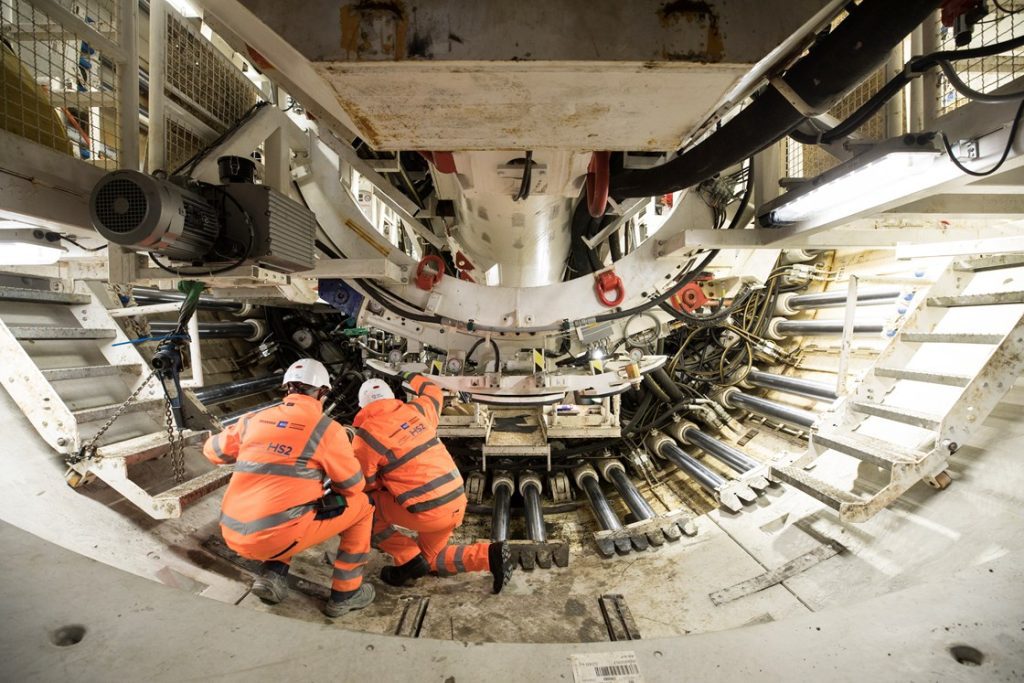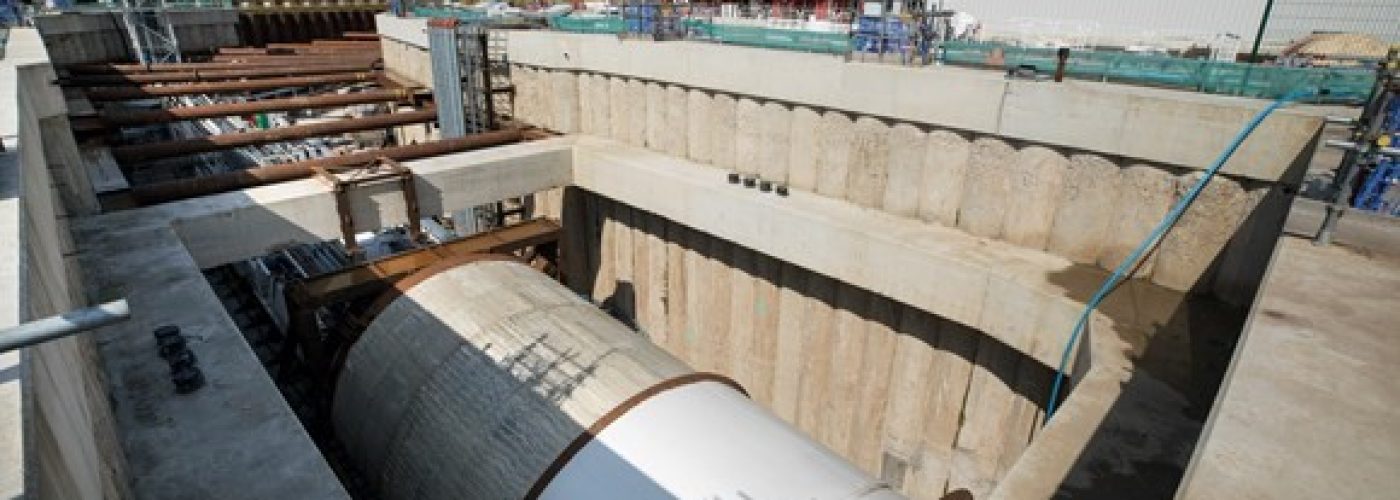- Giant 847 tonne machine will build an 853 metre logistics tunnel to deliver construction materials and remove spoil for the construction of the Euston Running Tunnel
- It will reduce lorry movements by 70,000 during construction
- With a 6.2 metre internal diameter, it starts 5 metres below ground and will reach a depth of 20 metres
HS2 has once again begun tunnelling under the capital, launching its third giant Tunnel Boring Machine (TBM) in London. The tunnel won’t be used by HS2 trains, but instead will be used to deliver materials and remove spoil from the northern portal where HS2’s Euston twin bored Tunnel will be constructed.
Engineers from HS2’s contractor, Skanska Costain STRABAG joint venture (SCS JV), launched the 847 tonne machine from the Atlas Road site in North Acton, from where it will build an 853 metre tunnel to the Old Oak Common Station site. The tunnel drive will be completed in around six months, with the tunnel constructed using 4,264 concrete segments forming 533 tunnel rings. The segments, each weighing over 3 tonnes, have been produced by Pacadar in Kent.
The tunnel will be used to transport 8,010 tunnel segment rings to construct the Euston tunnel. The segment rings are being manufactured by STRABAG in Hartlepool and will never be transported by public road – utilising rail, and the logistics tunnel – all part of HS2’s commitment to sustainable construction.
A conveyor system will also run through the logistics tunnel, and will connect to an existing conveyor at Atlas Road, taking the London clay being excavated to construct the Euston Tunnel to HS2 London Logistics Hub at Willesden Euro Terminal. From there, the spoil will be taken by train for re-use at sites in Kent, Cambridgeshire and Rugby.

Malcolm Codling, HS2’s Project Client for the London Tunnels, said:
“The Atlas Road Logistics Tunnel is key to how we will be constructing the Euston Tunnel between Old Oak Common and HS2’s Euston station. The logistics tunnel allows us to take 70,000 lorry journeys off the local roads that would otherwise have been required and will reduce the impact of HS2’s construction on the local community.”
The TBM being used to construct the tunnel has been repurposed using components from a TBM, ‘Ellie’, that was previously used on the Crossrail project. ‘Ellie’ dug two sections of the Crossrail tunnels in the Capital – from Limmo Peninsula in Canning Town to Royal Victoria Dock, and between Pudding Mill Lane and Stepney Green – boring a total of 2.23 miles.
Specialist TBM manufacturer, Herrenknecht, has designed a TBM specifically for HS2’s requirements and has expertly remanufactured components including the shield and the cutting wheel.
Following a longstanding tradition of naming TBMs after women, members of the local community have selected the name ‘Lydia’ for the TBM. Lydia Gandaa is a former teacher at nearby Old Oak Common Primary School and a founding member of the Bubble & Squeak social enterprise in the area. She is an active member of the local community, running after school and holiday clubs at the Old Oak Community Centre.

Speaking about having the TBM named after her, Lydia said:
“I’m delighted to have been invited to come down to the HS2 site and am honoured see the TBM that has been named after me. I am passionate about the local community and thank them for choosing my name for the TBM.”
The TBM was switched on following a naming and blessing ceremony at the Atlas Road site. Lydia was at the event to see her name unveiled on the giant machine, alongside pupils from Old Oak Primary School.
James Richardson, Managing Director of Skanska Costain STRABAG JV, said:”This is our third TBM to launch in London and later this year we will have five machines operating. Four of these will be boring the HS2 tunnels, linking West Ruislip and Old Common. Today’s launch is significant as it is not used for the operational railways, but will create a direct link to between our logistics hub and Old Oak Common, allowing us to transport tunnel segments and spoil without using local roads.”
Building, Design & Construction Magazine | The Choice of Industry Professionals





